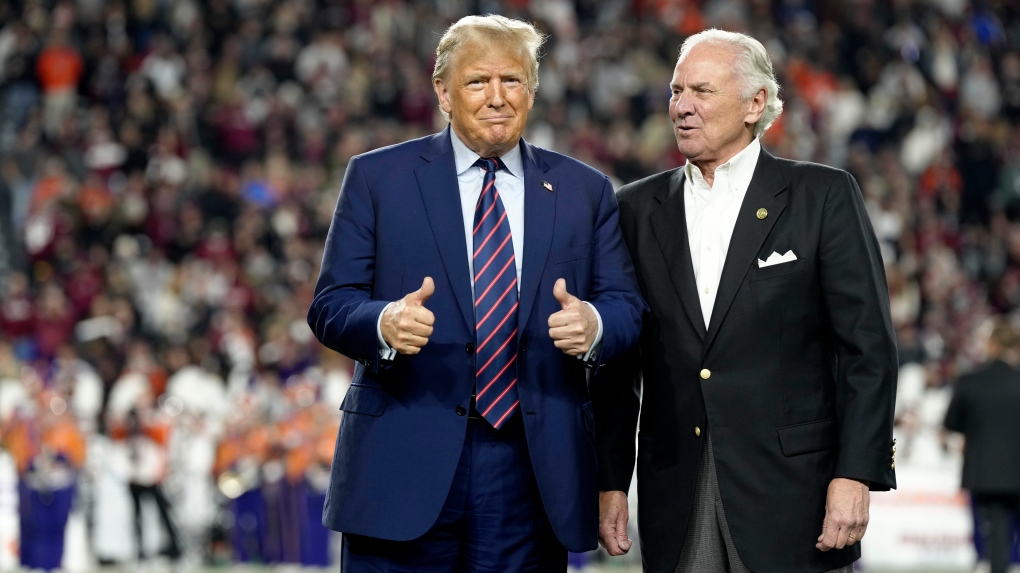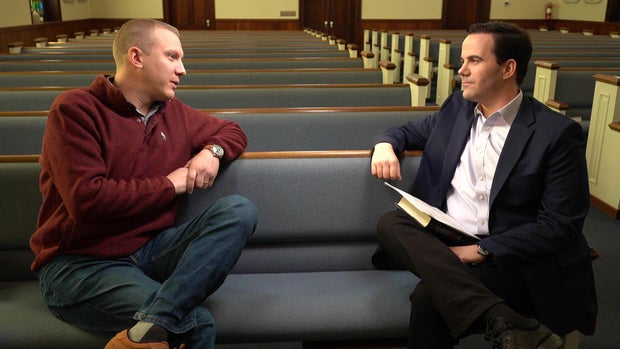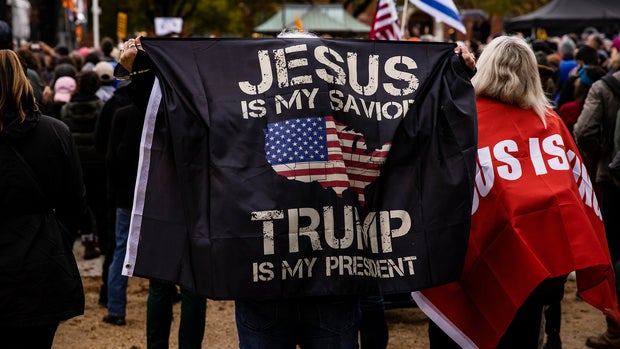
The former president’s doctors have often offered hyperbolic or unverifiable claims in reports about his health.
The former president’s doctors have often offered hyperbolic or unverifiable claims in reports about his health.
Former President Donald J. Trump posted a fawning but vague health report from his doctor on Monday that declares that Mr. Trump’s health is “excellent” and that he has recently lost weight through an “improved diet” and “daily physical activity.”
Mr. Trump’s physician, Dr. Bruce Aronwald, wrote the single-page report over two months after Mr. Trump, 77, underwent a “comprehensive” health examination in September, the document says.
In August, Mr. Trump reported to the Fulton County Jail, during an intake process for one of four criminal cases he is facing, that he weighed 215 pounds. That was nearly 30 pounds less than the White House doctor reported in 2020.
But the report on Monday did not include even basic details such as Mr. Trump’s weight, his blood pressure, his cholesterol levels, any prescriptions or even how much weight he had lost. Dr. Aronwald instead wrote that Mr. Trump’s “physical exams were well within the normal range and his cognitive exams were exceptional.”

The Trump campaign did not immediately respond to questions about specific details regarding Mr. Trump’s health.
The timing of the report appeared to be taking a jab at President Biden on his 81st birthday. While Mr. Trump has repeatedly mocked Mr. Biden’s age, he has had his own verbal stumbles on the campaign trail.
Mr. Trump’s doctors — an eclectic group of personal and White House physicians — have previously released memos and reports that have offered few details about his health and included hyperbolic claims and descriptions of his condition as “excellent.”
Dr. Harold Bornstein, Mr. Trump’s longtime personal physician, declared in late 2015 that Mr. Trump would be “the healthiest individual ever elected to the presidency.” He then later told The New York Times that Mr. Trump was taking medication for various ailments, including a prostate-related drug to promote hair growth. Dr. Bornstein later said that Mr. Trump sent his bodyguard among others to seize his medical records from Dr. Bornstein’s office after the physician fell from Mr. Trump’s orbit.

Dr. Ronny L. Jackson, a White House physician for Mr. Trump, asserted in 2018 that with a better diet, Mr. Trump could have lived to be 200 years old. Another White House physician, Dr. Sean P. Conley, repeatedly misled the public about the severity of Mr. Trump’s illness after he contracted Covid in 2020.
Mr. Biden, as president, has undergone annual physical exams and releases significantly more detailed health reports. His latest report, in February, was five pages long, noting specific ailments, like arthritis, and the regimen of tests taken — to detect neurological disorders, for example.
But tests and reports have done little to reassure voters that Mr. Biden has not slowed in his senior years, and any slip of the tongue or stumble on a stairway draws further public attention. During remarks at the White House on Monday, he confused Taylor Swift with Britney Spears.

Concerns about age and health have been a sore subject for both Mr. Biden and Mr. Trump, who would each be well past 80 by the end of a term in 2029. They have repeatedly dismissed such concerns, and each asserts that he is more than capable of serving another four years in the Oval Office.
In one notable episode, Mr. Trump repeatedly bragged in television appearances about acing a cognitive test that looks for signs of conditions like dementia and Alzheimer’s disease, wielding it as proof that he was sharper than Mr. Biden — who at the time was his opponent in the 2020 election.
Mr. Trump was particularly boastful of completing a memory test that involved reciting the words “person, woman, man, camera, TV” in the correct order.
Recent polls have found that roughly two of every three voters say Mr. Biden is too old to serve another four-year term. About half say the same about Mr. Trump.
Politics and the pulpit: How white evangelicals’ support of Trump is creating schisms in the Church
Goodwill Church, in New York’s leafy Hudson Valley, is a special destination for The Atlantic’s Tim Alberta. This was where his family’s faith journey began. “There’s something so deeply familiar about this place, it’s hard to describe,” he said. “My parents always described this church as holy ground for our family.”
Tim’s father, Richard Alberta, was once a pastor on this pulpit, after becoming a born-again Christian here nearly 50 years ago. “I don’t know where he sat,” said Alberta. “I don’t know what the sermon was that day. But something happened: A guy who’d been an atheist for years, you know, decided that he was gonna give his life to Jesus.”

The Alberta family later moved to Michigan, where Tim’s father led Cornerstone Evangelical Presbyterian Church. “My life was completely wrapped up in the church,” said Tim. “It was the sun around which we as a family revolved. It was our whole world.”

But Tim Alberta sought a career in journalism, writing about politics. His father urged him to stay grounded, including in a 2019 chat he’ll never forget: “He keeps saying to me, ‘Don’t spend your whole career around these people. There are so many other stories.’ And that was one of the last conversations we had.”
Days later, Tim’s dad suddenly died.
He recalled, “When I come home to my church, I’m expecting, I guess, something different from what I got.”
While some offered consolation, Alberta also got confrontation from some conservative church members objecting to his reporting on then-President Donald Trump. “A lot of folks right there at the viewing just wanted to argue about politics,” he said. “They wanted to know if I was still a Christian. And my dad’s in a box, like, 100 feet away.”
Costa asked, “The church wasn’t a sanctuary from politics; politics was now part of the church?”
“That’s right. I knew that, to some degree. And in fact, I willfully ignored it.”
Alberta’s reckoning with faith and politics is the basis for his new book “The Kingdom, the Power, and the Glory,” which documents what he calls an “age of extremism” for evangelicals. “There was a real crisis in the American church, specifically a crisis in the white evangelical church,” he said.

According to Pew Research Center, about a quarter of American adults (24%) identify as evangelical. And as the Republican presidential race heats up, 68 percent of white evangelicals are supportive of Trump. Alberta says that reflects a shift away from norms – in the GOP and in the church.
“We should think about the American church almost in parallel to American politics,” he said. “When it gains enough influence, when it gains enough power, the fringe can overtake the mainstream. And that’s what we’ve seen happen in the church.”

The convulsions in today’s churches come after decades of evangelicals gaining influence, from Billy Graham’s stadium crusades, to the stadium rallies of Donald Trump. In recent years, evangelicals have had heated debates, over the response to COVID and to Trump, all while many key Republicans (like House Speaker Mike Johnson) count themselves as one of them.
At Goodwill Church, Senior Pastor John Torres (who used to work with Tim’s dad) is uneasy about the shadow of politics over his church and others.
Costa asked Torres, “What do people say about politics?”
“That it’s bad. That it’s dirty.”
“What do they say to you about politics?”
“Don’t get involved,” Torres replied. “I don’t want somebody who’s sitting there, listening to me preach, whatever their views are, I want them to stay put. I wanna talk to them about Jesus. I don’t want to talk to ’em about politics. ‘Cause I don’t really know what I can offer them in terms of politics.”
Other evangelicals don’t mind politics – and see this moment as an affirmation of hard-won power.

Costa asked, “What do you say to evangelical leaders who might hear your argument and say, ‘You missed the point: Trump wins for evangelical Christians, he wins for Conservative America’?”
“Wins what?”
“Supreme Court seats, a seat at the table at the White House?”
Alberta responded, “Show me where in scripture any of that matters.”
But it does matter to many of those standing with Trump as he once again seeks the White House. Alberta said, “You have millions of evangelical Christians who voted for Donald Trump and just sort of gleefully embraced his terrible rhetoric and his un-Christlike conduct.”
“Why did they ‘gleefully’ embrace it, to use your term?” asked Costa.
“Power,” Alberta replied. “Trump campaigned for president in 2016 promising that if he was elected, Christians would have power. He gave it to them. He gave it to them in ways that, arguably, no American president has in modern history. And when you have power, you can very quickly lose sight of your principles, your values and your beliefs.”
Alberta says that, regardless, today his faith has never been better. His faith in reporting is also strong, and he says that is his own calling.
“You and I, we’re reporters,” said Alberta. “We’re not supposed to be the story. I never wanted to be the story. [But] once you see this, you can’t look away.”



Leave a Reply